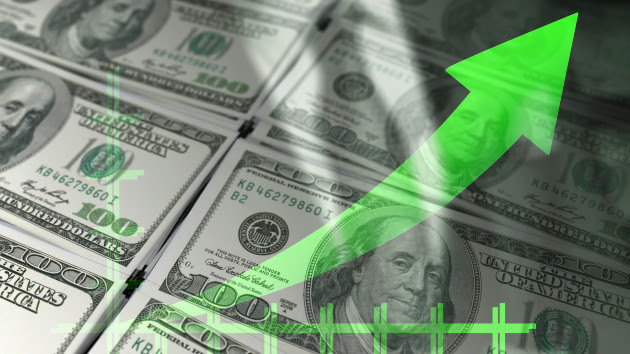
(NEW YORK) — Investors and consumers on Wednesday will closely watch the release of fresh inflation data, which will show whether price increases continued a months-long slowdown in March.
The data release arrives less than a month after the Federal Reserve imposed the latest in a string of borrowing cost increases, despite concern that previous rate increases helped trigger the nation’s banking crisis.
Consumer prices rose 6% in February compared to a year ago, marking the eighth consecutive month of smaller price hikes, government data showed.
Economists surveyed by Bloomberg expect consumer prices to have risen 5.1% in March compared to a year ago, which would mark the lowest reading in almost two years.
However, the economists also forecast that consumer prices will show a monthly gain of 0.4%, complicating a smooth downward path to normal price levels.
Inflation has fallen significantly from a summer peak, though it remains triple the Fed’s target of 2%.
The rapid rise in interest rates, however, tanked the value of bonds held by Silicon Valley Bank, precipitating its failure and cascading damage for the financial sector.
With an aggressive string of rate hikes last seen in the 1980s, the Fed aims to slash price hikes by slowing the economy and choking off demand. The approach, however, risks tipping the U.S. economy into a recession.
Mounting evidence suggests rate hikes have slowed the economy.
Nearly 190 banks are at risk of collapse amid high interest rates and declining asset values, according to a study released by a team of university researchers last month.
Meanwhile, the U.S. added 236,000 jobs in March, which marks robust job growth but a reduction from an average of 334,000 jobs added each month over the previous six months, according to government data released on Friday.
The International Monetary Fund said on Tuesday that it expects the U.S. economy to expand by 1.6% this year, which would prove a slowdown from 2.1% growth in gross domestic product last year.
Still, some key areas of the economy have proven resilient, despite the rate hikes.
Existing-home sales spiked 14.5% in February, ending a 12-month streak of declines and recording the largest monthly percentage increases in nearly two years, National Association of Realtors data showed.
Meanwhile, U.S. retail sales fell moderately in February but remained solid, suggesting that households still retain some pandemic-era savings.
Copyright © 2023, ABC Audio. All rights reserved.







